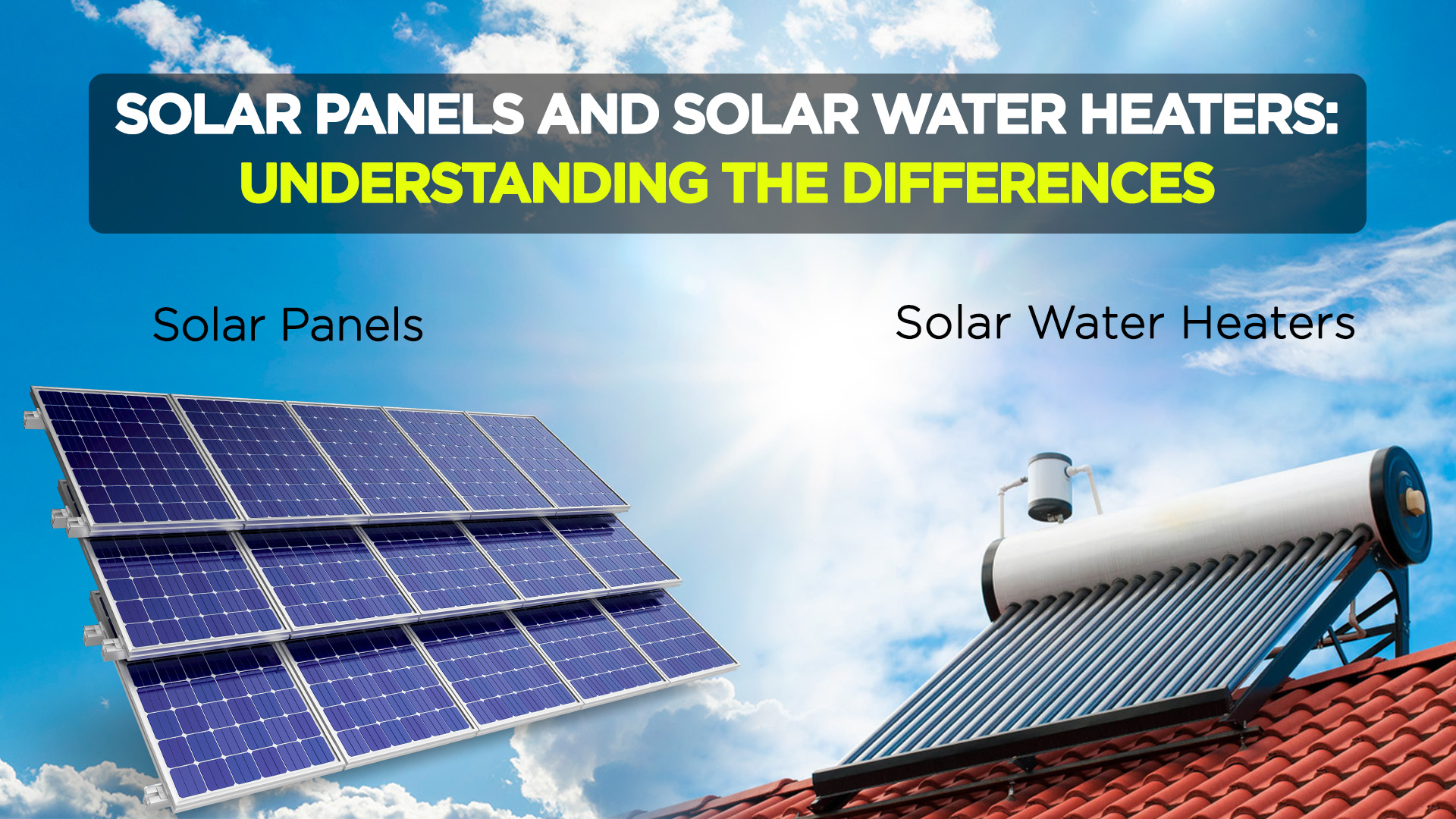
Solar Panels and Solar Water Heaters
Solar energy is a renewable and clean energy source that has gained popularity in recent years. People who want to reduce their carbon footprint and save on energy bills now have access to different solar technologies. Two common solar technologies are solar panels and solar water heaters. Many people mistakenly believe that these two are the same things, but they are different technologies that serve different purposes. In this article, we will explore the differences between these two technologies to help you make an informed decision when choosing which one to install.
Components of a Rooftop Solar System
A rooftop solar system is a collection of components that work together to generate electricity from solar energy. Solar panels are one of these components, and they are made up of many solar cells. When sunlight falls on solar cells, it is converted into direct current (DC). The next component is the solar inverter, which transforms DC electricity into alternating current (AC) electricity that home appliances use. Once the AC power is generated, AC cables transfer this electricity into a bidirectional net meter, which supplies electricity to the home appliances and runs them efficiently. The net meter keeps a record of the unit exchange and is used for bill generation. Another crucial component of a solar system is the solar mounting structure, where solar panels are mounted to collect maximum sunlight.
How Rooftop Solar Systems Work
Rooftop solar systems generate electricity for the entire house. They work by harnessing the sun’s light to produce electricity, which can run all home appliances efficiently. The electricity produced by rooftop solar systems is very reliable and can reduce electricity bills by up to 90%. When the night comes, electricity from the grid is imported and used to power the house. In summary, a rooftop solar system can fulfill almost all your energy needs.
Solar Water Heaters
On the other hand, solar water heaters use the sun’s heat to increase the temperature of the water. They do not produce electricity, and their purpose is limited to heating water. A solar water heater has a collector plate inside that contains an absorber. The absorber absorbs the sun’s heat and uses it to raise the water’s temperature, which is then stored in an insulated tank. Although solar water heaters are practical, they are not as long-lasting as solar systems and can’t generate electricity or run any household appliances.
Differences Between Solar Panels and Solar Water Heaters
Although both solar panels and solar water heaters use solar energy, they are different technologies that serve different purposes. Solar panels use sun’s light to generate electricity, while solar water heaters use the sun’s heat to increase water temperature. Rooftop solar systems can generate electricity to run the entire household, while solar water heaters cannot generate electricity and are limited to heating water. The savings generated by rooftop solar systems can be enormous, up to 90%, while savings from solar water heaters aren’t very high. Rooftop solar systems can last for at least 25 years, while solar water heaters are not as long-lasting.
Which one is Better?
Hands down, a rooftop solar system is a better investment than a solar water heater. Rooftop solar systems can fulfill all your energy needs, reduce your electricity bills, and make you energy independent. Solar water heaters are limited to heating water, which is not enough to power all household appliances. If you are looking for a long-term solution that will save you money and reduce your carbon footprint, then a rooftop solar system is the way to go.
Conclusion
Solar panels and solar water heaters are not the same things. Solar panels are one component of a rooftop solar system, which works like an engine to generate electricity. Rooftop solar systems use the solar energy to generate electricity, while solar water heaters use the solar energy for water heating purpose.
Read More:- Subsidy in Solar Rooftops Subsidy Scheme/Yojana 2023

